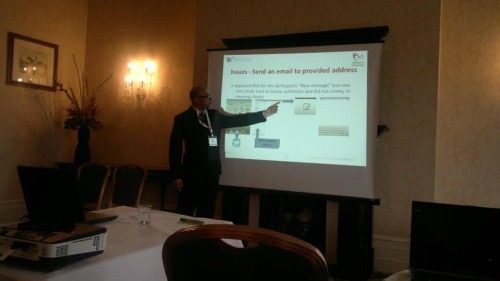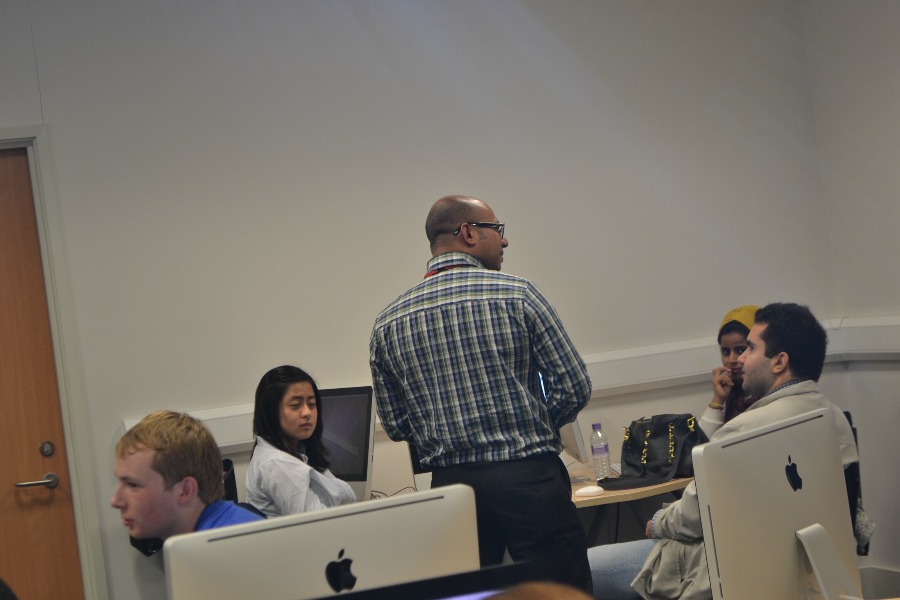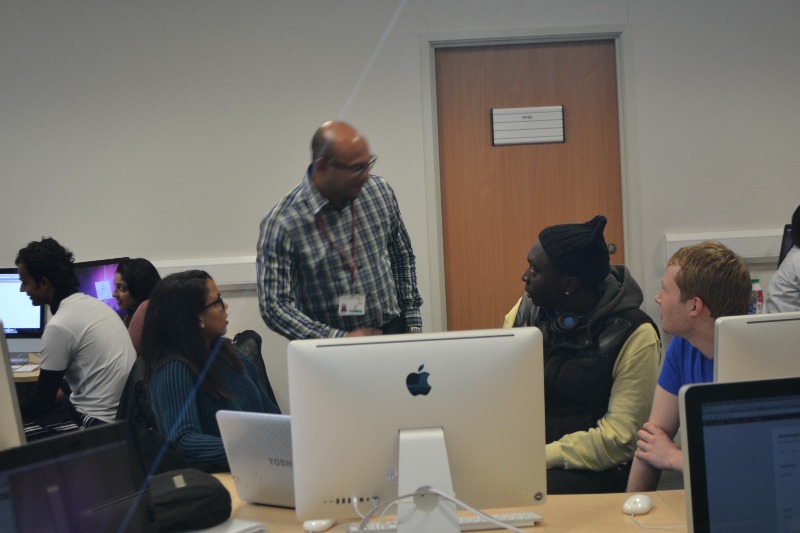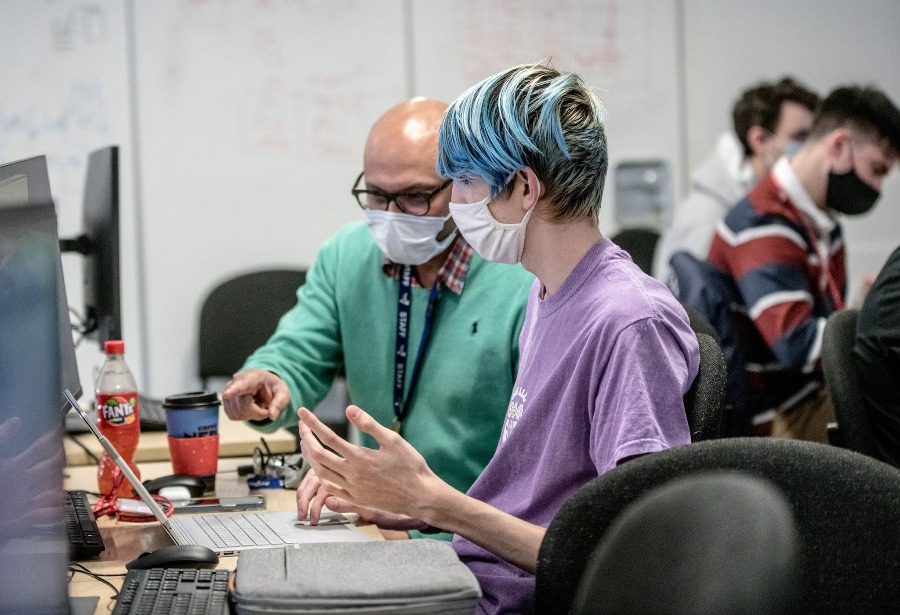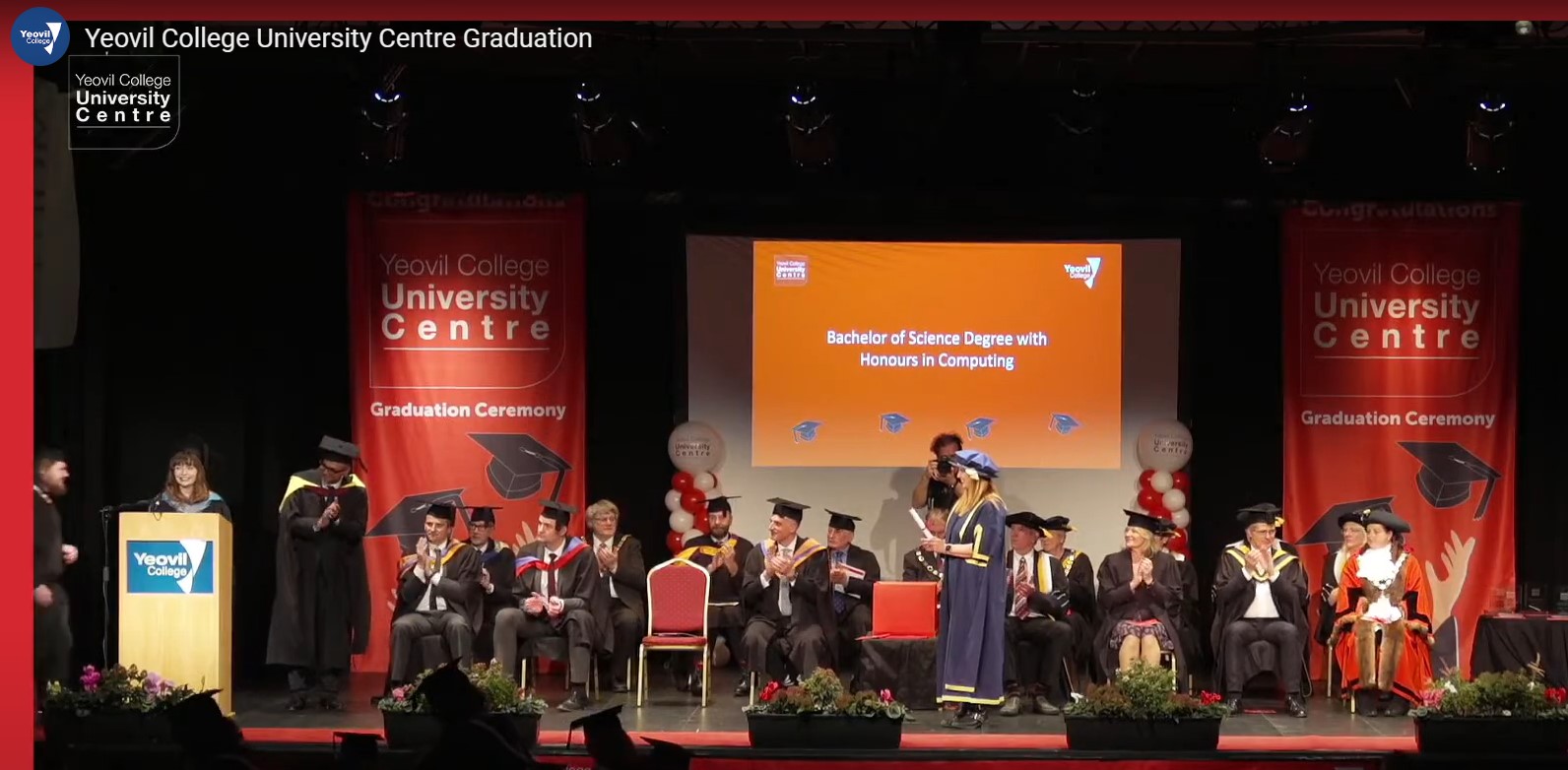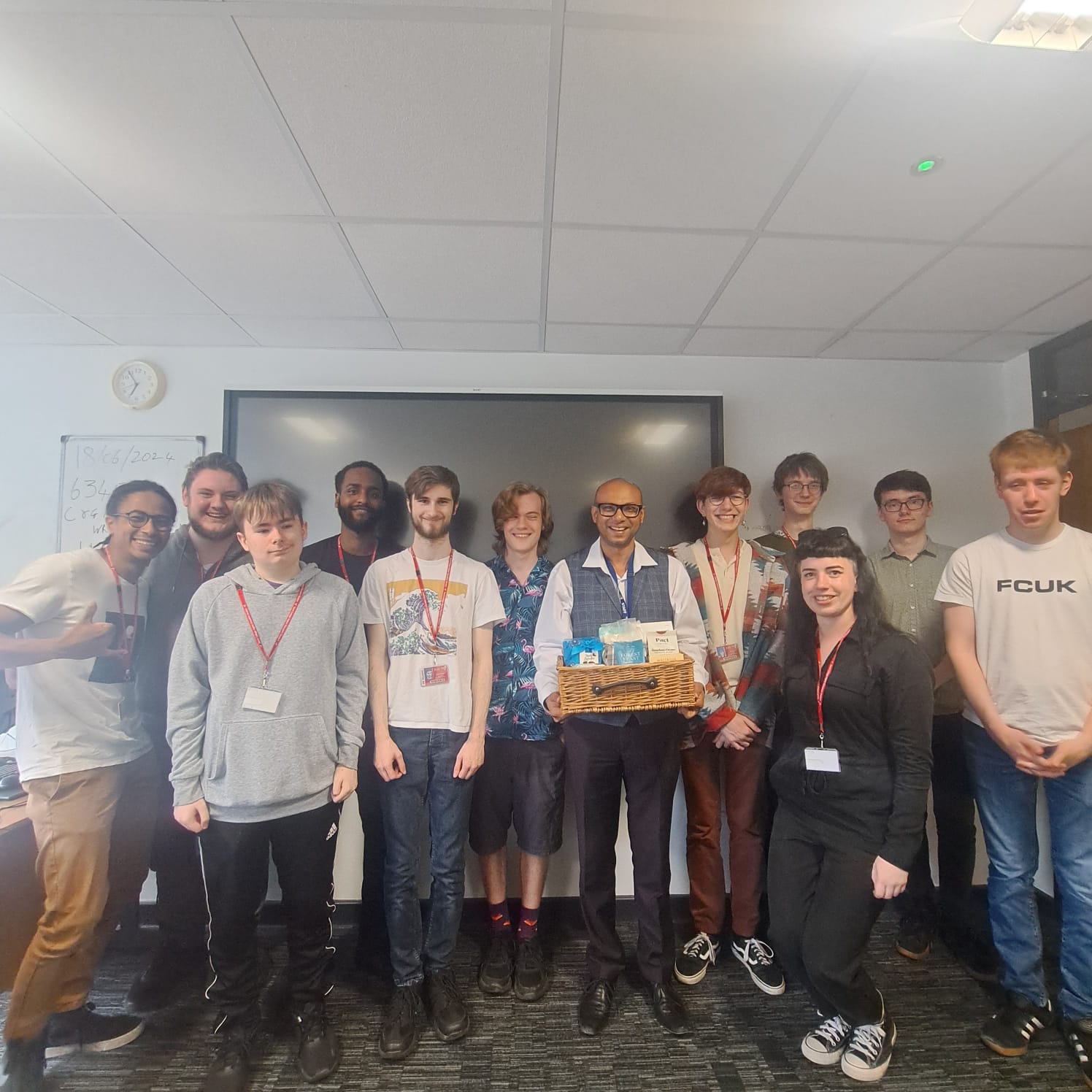


I am Syed Murad. I am Subject Lead for Computer Programming at the University of Bristol. My primary research area is Human-Computer Interaction, in particular Persuasive Technology, Persuasive Visualisation, Behaviour Change and UX design. I am also interested in interaction design for the user who are most difficult to accommodate - which tend to be those who have little or no digital experience and/or those who are reluctant to learning new interactions.
I was involved on the EPSRC Sandpit funded project Building Relationships with the Invisible in the Digital (Global) Economy (BRIDGE), in conjunction with Product Design and Engineering Department at Middlesex University, Business School at Edinburgh University, and Institute of Transport Studies at Leeds University. Within this project my team examined the barriers to use for older novice users of handheld touchscreen devices. I subsequently worked on the EPSRC/ESRC funded project ‘Protecting Children in Online Social Networks’. I was also involved with the Artificial Intelligence and Human Systems (AIHS) Group at Durham University and Service Design research group at Loughborough University.

I am currently working at the University of Bristol as the Subject Lead for Computer Programming. I demonstrate strategic and balanced leadership, teaching, and impactful professional development, effectively managing responsibilities to enhance student outcomes. I conceived and led the design of the Computer Programming curriculum and the development of the academic program. I manage and mentor a team of tutors, offering guidance, professional development opportunities, and performance feedback to enhance their teaching effectiveness. I am also responsible for spearheading the development and implementation of continuous professional development initiatives, ensuring that the teaching staff remains at the cutting edge of advancements in computer programming education. I collaborate with academic and administrative teams, as well as external stakeholders, to shape and enhance the curriculum, contributing to the program's reputation as a world-class educational provider.

I have worked at Yeovil College as HE Programme Leader and Lead IV for Computing. I was the programme leader and lead IV for HNC-D Degree programme. I have managed curriculum and administrative aspects of these programmes. I led the teaching of IT to students in pursuing HNC-D and degrees. I also managed a team of lecturers to ensure that the team worked effectively according to college guidelines and that lessons were delivered effectively to enhance positive experiences for all the students. My job required the design and delivery of lectures, seminars, and tutorials to students within the IT HNC-D and Degree programmes. I was teaching and supervising research projects for the degree programmes. Part of the job was required to develop curriculum and documentation standards and manage adherence to the defined standards and processes to ensure compliance. I also led the validation process and documents. I had developed relationships with internal and external stakeholders to ensure planning business objectives are achieved. I monitored student progress across academic programmes. I also oversaw the academic labs and provided leadership for planning new and improved labs and staff development to optimise student academic success.

I have worked as a Lecturer and module coordinator. I was responsible for Database Design & Implementation, Web programming, computer architecture and Programming. Furthermore, I was responsible for the computing department and ensured smooth running. During 2019, I was involved in creating all learning material and validation for computer science department. I was also involved in planning and running student support and the learning weeks.

I was the key contact point for the students at business school throughout the course. I also monitored their attendance and engagement, liaised with academic tutors and Health and Wellbeing team when necessary. I had used a suite of data to effectively analyse student performance in regard to attendance, academic engagement, adherence to external regulations (Tier 4 requirements) and payment of fees, etc. I also produced regular and ad hoc reports to analyse student attendance and retention activities. Part of my job required meeting with students regarding their performance, engagement and with other issues to ensure that they can engage and have the best student experience. I maintained an in-deep understanding of the of university regulations and procedures to support the provision of accurate advice, guidance and signposting. I had created and build up a professional relationship with my students to ensure a clean and engaging admissions and academic process through their entire journey to completion. I was also involved with admission and interviewing potential student.

I have played a key role in investigating Service Design and identify/design methods suitable for different stage of the project. I planned, modified, and executed research techniques and tests. I have undertaken qualitative and quantitative research and conducting detailed analysis of experimental data. I was responsible to write a yearly report based on experiment results and analysis.

I have worked as a Lecturer/Module Leader in the School of Science and Technology at Middlesex University. My major responsibilities as a Lecturer/Module Leader were delivering lectures and labs, preparing coursework and other course materials, engaging with students to facilitate effective learning, and marking and submitting grades. I was leading a team of 4 lab tutors working on my module. I was responsible to brief them on the module and how the teaching will be organised, furthermore, to ensure that student needs and expectations are met.
I played a key role in investigating and evaluating user interfaces involving conducting evaluation sessions with user groups, undertaking qualitative and quantitative usability testing and conducting detailed analysis of experimental data and contributing to the formulation of conclusions and working with technical personnel to develop interfaces accordingly.
I was actively involved in the EPSRC/ESRC funded “Protecting Children in Online Social Networks” project aimed at developing an ethics-cantered monitoring framework and tools for supporting law enforcement agencies in policing social networks. I was responsible to conduct thorough investigations into various methods of participatory design, performing interviews and investigating workshop techniques with mix methods.
PhD candidate
Durham University
MSc: Information Technology
Cardiff Metropolitan University Modules
BSc: Information Technology
Middlesex University Modules
PUP

Module Leadership:
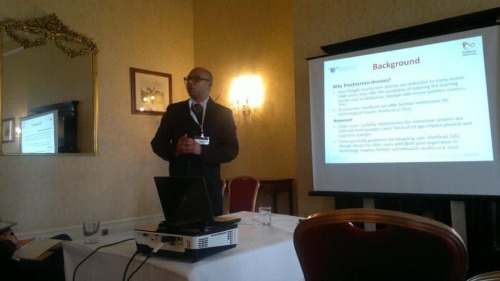
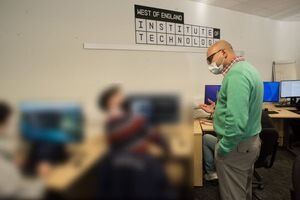
Programme Leadership:
Module Leadership:
BSc YC6002 - Advanced Programming YC6003 - User Experience Design YC6004 - Web Application Development YC6006 - Dissertation HND Unit 28 - Prototyping Unit 29 - Application Programming Interface Unit 30 -
Application Development HNC Unit 1 - Programming Unit 4 - Database design & Development Unit 9 - Software Development Life Cycles Unit 10 - Website Design & Development
Programme Leadership:

Module Leadership:
Database Design Implementation - Web programming - Programming - Computer architecture
Module Leadership:
Modules:
Information Systems Project (BIS3322) - Data Warehousing and Business Intelligence (BIS3214)- New Media (CMT3331) - Database Systems: Design and Online (BIS2212) - Object Oriented Analysis and Design (BIS2311) - Web
Development and Scripting Technologies (CMT2317) - Information Systems Foundations (BIS1201) - Discovering Interaction Design (CMT1300)
Syed Murad and Effie Law
Interacting with Computers, Volume 37, Issue 5, September 2025, Pages 364–380.
Abstract
Carbon emissions from transport are increasing on a global scale with transport accounting for the largest portion. While there is greater awareness of climate change, few people are willing to change their travel habits. To gain a better understanding of this phenomenon, we were motivated to conduct a study to identify the obstacles encountered by travellers when opting for sustainable transport modes, assess their knowledge of carbon emissions from various transport modes and explore how this knowledge affects their decision-making process. The study employed mixed-method approaches, including the use of informational videos and gamified quizzes for intervention, pre- and post-intervention knowledge assessment tests, semi-structured interviews, observations, Self-Assessment Manikin for emotion measures and card sorting. The findings primarily derived from thematic analysis indicated that knowledge-based intervention can be a strong catalyst to encourage sustainable attitude and behaviour change. Insights so gained have important theoretical and practical implications for designing sustainable behaviour change in the future, especially the deployment of persuasive technology.
Swaroop Panda, Farkhandah Komal, Effie Lai-Chong Law, Syed Murad, Zhongtian Sun, Ben Summerill, Delali Konu and Thuy-Vy Nguyen
Proceedings of 38th International BCS Human Computer Interaction Conference, 2025.
Abstract
Many banks have shut their physical offices and shifted to online banking. Many will benefit from this transition, but older adults may be left behind due to their traditional views on money and technology. Without proper consideration of their needs and preferences, older adults may become marginalized in this digitalization process. In this paper, we investigate why older adults may or may not be comfortable with the technology-enabled ways of banking and their acceptance of a fintech chatbot. Towards this, we built a chatbot specifically designed to help older adults complete financial transactions such as money transfers, checking balances and managing their pensions. We developed this chatbot using human-centred design principles and inclusive and accessibility design methods. We incorporated Large Language Models (LLMs) into our prototype to enable users to engage in casual conversations with the chatbot to mimic chats with human bank advisors in physical venues. To assess the effectiveness of the prototype, we carried out user studies involving older adults. We analysed the study’s results to identify the factors that contribute to the trust and acceptance of the chatbot and in online banking in general. We further extrapolate these findings to provide recommendations for designing fintech chatbots for older adults.
Syed Murad, Effie Law
Proceedings of 36th International BCS Human Computer Interaction Conference 2023.
Abstract
Business travels are a significant perpetuator for carbon emissions. With our exploratory study, we aimed to gain a better understanding of academic business travellers’ knowledge, planning strategies and mental models for sustainable travel. Analyses of the interviews and card sorting data showed that the travellers had insufficient knowledge or support for sustainable travel choices. The user experience of in-control, trust and security in the transport used was the salient factor for their choices.
Our future work will focus on utilising persuasive models and interactive technologies for behaviour change to make sustainable travel choices.
Syed Murad, Michael D Bradley, Neesha Kodagoda, Yvonne F Barnard, Ashley D Lloyd.
M. Anderson (ed.) Contemporary Ergonomics 2012 (Taylor & Francis, London)
Abstract
Access to online resources is becoming more important for engagement with society. However, older people with limited experience of digital interfaces can have significant difficulties with access. Touchscreen devices have
shown potential to offer a lower learning barrier for older and novice users. Usability becomes increasingly important with age related changes in sensory perception, cognition and motor skills. This pilot study has investigated
errors made by older users with low prior experience of digital interactions. This paper reports their behaviour and errors using a tablet touchscreen device through attempting several tasks. Task analysis and actual user
task sequences have been used to explore the errors and consequent difficulties experienced by the participants.
Michael D Bradley, Emeline Zitkus, Neesha Kodagoda, Syed Murad, Adrian Westaway, Clara Gaggero, Duncan Fitzsimons, Yvonne Barnard, Ashley Lloyd.
M. Anderson (ed) Contemporary Ergonomics 2012 (Taylor & Francis, London)
Abstract
Designing digital interfaces for users who are older, novice and digitally excluded is not well addressed in the research literature. This paper describes a part of the process of generating a touchscreen interface
prototype for this group, for subsequent evaluation with representative users. The rationale to develop such an interface and some of the major decisions taken to reach the prototype are discussed. The paper highlights
the issues found in the process and suggests a topic to be explored in future research to facilitate the design of digitally inclusive interfaces.
